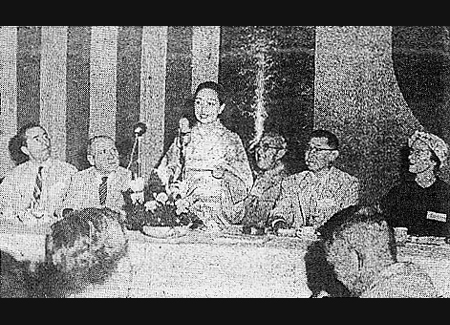|
Omi Workers Get Support, 1954

“MANCHESTER, Aug. 27 (Kyodo-Reuter)—The International Federation of Textile Workers Associations has asked the textile unions of 16 member nations to give ‘all possible support’ to the 7,000 strikers at Japan's Omi Spinning Company.
“John Greenhalgh, secretary of the international federation, announced in London that letter had been dispatched outlining the background of the "human rights" strike at the Omi plants.
“‘We cannot allow a dispute of this character to go on without the support of the international federation,’ he said.
“The 290,000 workers in the British cotton industry make up the largest national group in the membership of the international federation, which also represents the textile workers of France, Holland, Belgium, Switzerland, Germany, Den¬mark, Sweden, India and other countries.
“The Japanese Federation of Textile, Workers Unions—refused recognition by the Omi management—is a postwar recruit to the international federation and has asked for world backing among textile workers.
“In the official report of the international federation, Greenhalgh says the three-months-old strike has "severely shocked" the conscience of the Japanese people.
“Greenhalgh is to visit Japan at the. end of October.”
From: “Omi Workers Get Support,” Nippon Times, 28 August 1954.
| 